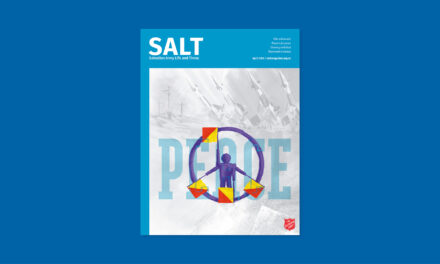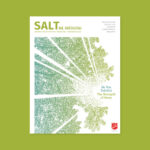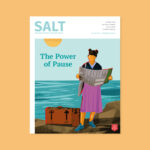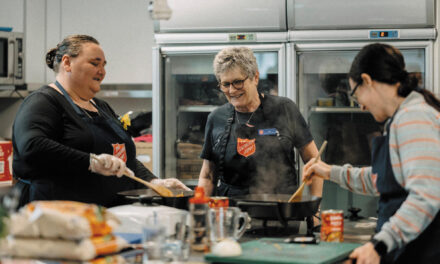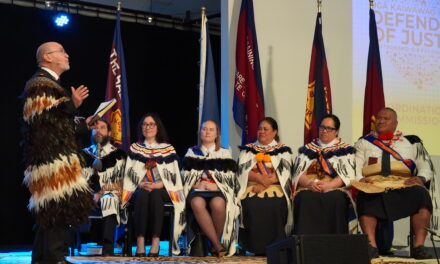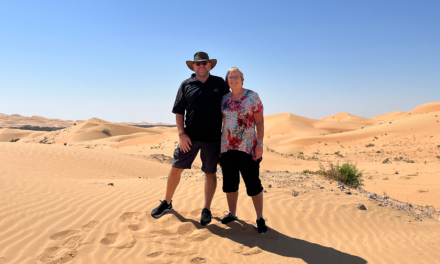
At War with Our Words

Media headlines echo the widespread call for peace in our world. In the midst of this noise, Kelly Cooper delves into a slightly quieter battleground—the one where we are at war not with weapons, but with our words—and explores what it means to be a peacemaker right where we are.
Annually, the Institute for Economics and Peace publishes the ‘Global Peace Index’, assessing nations’ peacefulness across 23 indicators. Since 2014, New Zealand has regularly featured in the top five most peaceful countries in the world. We boast the rare status of being a nuclear free country, our police officers do not routinely carry guns, and our petty crime rates are considered low on a global average. One might characterise us as a peaceful nation, yet many of us report being engaged in some type of conflict.
In our corner of the world, we enjoy the liberty of holding and expressing our individual opinions. We hold tight to our right to freedom and seem to be growing increasingly wary of top-down control. Our media invites us to wade into conversations and assume positions on every situation imaginable: social injustices, environmental sustainability and racial inequity, just to name a few. Which side do you take? Who do you align with? What is your stance? We may not be fighting with weapons, but many of us are fighting with our words.
The Bible tells us that words are powerful (Proverbs 18:21); that they can wound (Proverbs 12:6); and that they can build each other up and be life-giving (Ephesians 4:29). The words we speak to others, share online and even utter to ourselves matter. So how then can we participate in conversations and communicate with one another in a way that honours God, especially when we do not agree?
The Greek term for peace in the New Testament originates from the word ‘eiréné’, which means ‘to join’. Living in peace meant, and continues to mean, joining with others. Throughout history we are provided with many examples of women and men who have joined the conversation with peaceful expression. They understood both the significance of their words and knew how to enter conversations in a way that did not minimise the power of others. Even in times of disagreement, they demonstrated how to engage in dialogue and articulate their thoughts and opinions peacefully.
Dorothy and Martin
Dorothy Day was a renowned American social activist and devout Catholic who epitomised the art of peaceful expression through her words. As a co-founder of the Catholic Worker Movement, she used her platform to advocate for social justice, nonviolence and the rights of the poor and marginalised. Dorothy’s writing, particularly in the Catholic Worker newspaper, demonstrated her unwavering commitment to pacifism and love. Despite being arrested on several occasions and publicly challenged by many, Dorothy demonstrated the transformative power of words in fostering compassion and positive social change.
Martin Luther King Jr is well known for his work advancing civil rights for people of colour in the United States through the use of nonviolent resistance. Martin participated in and led peaceful marches for the right to vote, labour rights and desegregation. He was jailed, physically assaulted and threatened on several occasions, yet did not waver from his commitment to peaceful methods. Martin is well remembered for his words, particularly his ‘I Have a Dream’ speech, which is recognised as one of the most iconic speeches in history. Understanding that ‘peace is not merely a distant goal that we seek, but a means by which we arrive at that goal,’ King exemplified in his life and through his words that the path forward is always one of peace.
Words at the well
One individual who undoubtedly endured numerous unkind words directed both toward her and about her is the Samaritan woman Jesus encountered at the well in the Gospel of John. In John 4:7 we learn about a conversation Jesus had with this woman who had come to get water in the middle of the day. The Samaritan woman was an outcast who was ostracised by her community for being an unmarried woman living openly with the sixth in a series of men. Jesus didn’t point the finger about her domestic situation or speak in an accusatory tone. He didn’t use his position or power to assert influence or authority. Instead, he invited her to join him in a conversation by asking a question, ‘Will you give me a drink?’ After the woman’s initial surprise at being addressed, their conversation not only altered the course of her life but positively impacted the lives of many others as well.
Peacemaking is a central theme in Jesus’ teachings. In his Sermon on the Mount, he tells us ‘Blessed are the peacemakers, for they shall be called sons [and daughters] of God’ (Matthew 5:9). Jesus’ interactions with others were typically characterised by compassion, empathy, understanding and a profound respect for their dignity. He often began his conversations with kindness regardless of the social status, background, or circumstances of the individual he was speaking to.
On the night before Jesus died, when his followers tried to protect him from arrest and strike with their swords, he commanded ‘No more of this!’ (Luke 22:51). Jesus chose peace, and he encourages us to do the same in our actions and with our words. He taught us an alternative way to fight, one that sometimes looks a lot like withdrawing to have victory. When we join with others in conversations as curious questioners and lean-in listeners, we understand the power of peaceful expression. Jesus reminds us too, ‘no more of this’. Perhaps it’s time to let Jesus have the last word?


